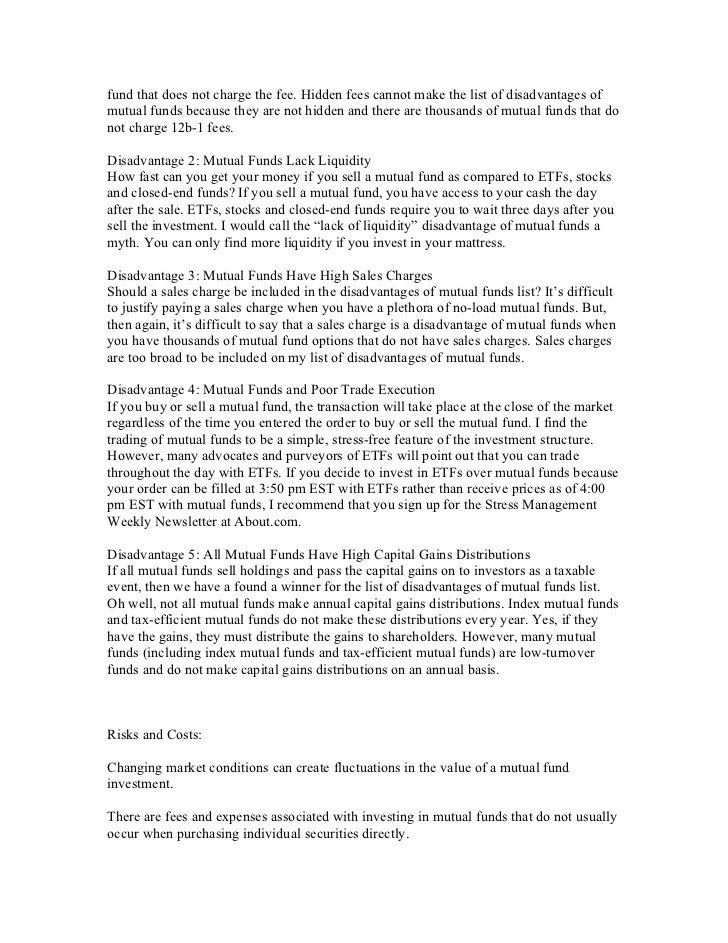Hidden Fund Fees Morningstar Weighs in on Hidden Fund Fees
Post on: 28 Март, 2015 No Comment

Why Pay the 12b-1 Fees that Some Call Hidden Fund Fees?
You can opt-out at any time.
Please refer to our privacy policy for contact information.
Why do you have to pay those hidden fund fees known as 12b-1 fees. Some folks think these fees are no good, hidden fund fees that are unnecessary. Others will argue that they deserve to make a living, so keep ‘em coming (think: the person who sold you the fund). Should 12b-1 fees be labeled as hidden fund fees? The truthful answer is probably somewhere in the middle.
There’s been so much press on these so-called hidden fund fees lately that I posed a few questions to Morningstar. I asked Russel Kinnel, director of fund research at Morningstar to weigh in on the argument.
Lee: “12b-1 fees have been a hot topic on blogs, in the media and in the courtroom. Will the recent court cases coupled with the SEC’s ‘rethinking’ of 12b-1 fees lead to lower fund fees?”
Russel Kinnel: “It’s possible, but very hard to predict. There are some parts of the fund sales chain that prevent true competition on costs. Will the court or SEC unleash competitive forces? Probably not enough to have a big impact.”
Lee: “Individual investors may not understand the need for these fees. Many investors simply don’t see the value of this ongoing fee that many feel is a hidden fee. They see the 12b-1 fee as a simple reduction of their net returns.”
Russel Kinnel: “The SEC is taking a long look at them. They are messy for a couple of reasons. First, the stated reason for collecting them is often different from the real reason. Second, there are no breakpoints in it based upon volume. That said, there are legitimate account services being provided in exchange for 12b-1s, so simply killing them off isn’t the answer tempting though it may be.”

Lee: “In terms of total mutual fund fees, several reputable sources have concluded that the average total fees of mutual funds are in excess of 3%. This topic is debatable as evidenced by a recent Wall Street Journal article (and my blog post ‘The Fund Fee Debate Goes On ‘). Where do you fall in this debate?”
Russel Kinnel: There are two separate issues here. First, trading costs are not stated in expense ratios and they can run between 50 and 350 basis points, so yes there are more costs than are apparent. However, it’s not like separate accounts or buying stocks directly spares you from trading costs. I would like to see greater disclosure here, though.
Lee: Do you think investors should concern themselves with this issue of ‘average’ total costs? After all, they have plenty of inexpensive, no-load funds at their finger tips.
Russel Kinnel: The average investor does not have to settle for average costs – nor do they. The average investor pays less than 90 basis points in expenses per year (not including trading costs). Moreover, they can do better than that. There are outstanding actively managed funds charging less than 70 basis points a year and great index funds charging less than 20 basis points. As Jack Bogle says, you get what you don’t pay for.
Related Blog Posts














